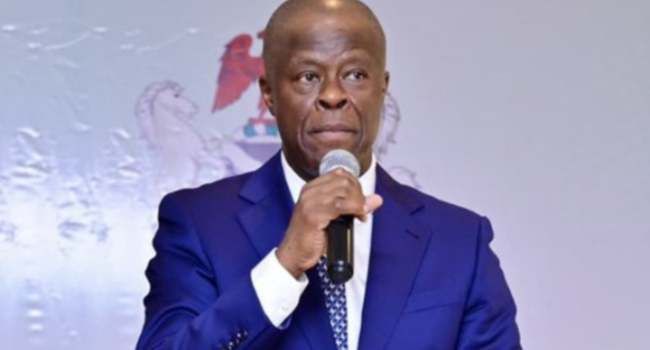
The Federal Government of Nigeria has justified its continued borrowing plans, despite significant revenue improvements by key agencies. Speaking at an interactive session with the Senate Joint Committees on Finance and National Planning, Minister of Finance and Coordinating Minister of the Economy, Wale Edun, emphasized the necessity of borrowing to fully fund the national budget.
Edun explained that productive and efficient borrowing, with Senate approval, is critical to addressing the N9.7 trillion budget deficit in the 2024 fiscal plan.
“Borrowing needs to be done productively and efficiently for proper budget funding,” Edun stated, justifying the borrowing plans outlined in the N35.5 trillion 2024 budget.
Mixed Reactions from Revenue Agencies
Contrasting the government’s position, some agencies argued that improved revenue collection could offset the need for loans. Chairman of the Economic and Financial Crimes Commission (EFCC), Ola Olukoyede, disclosed that the EFCC had recovered over N197 billion since January 2024.
“If the government intensifies efforts to collect the requisite revenues from International Oil Companies (IOCs), there will be no need to borrow,” Olukoyede told the Senate committee.
Other agencies, including the Nigeria Customs Service (NCS) and the Nigerian National Petroleum Company Limited (NNPCL), also reported revenue surpluses. Comptroller General of Customs Bashir Adeniyi revealed that the NCS generated N5.352 trillion in 2024, exceeding its target of N5.09 trillion. Adeniyi added that the agency projects N6.3 trillion in revenue for 2025, with a 10% increase planned for subsequent years.
Similarly, NNPCL’s Group CEO, Mele Kyari, announced that the corporation surpassed its N12.3 trillion revenue target for 2024, recording N13.1 trillion. For 2025, NNPCL aims to remit N23.7 trillion into the Federation Account.
Opposition Criticism
The Senate’s approval of President Bola Tinubu’s ₦1.77 trillion ($2.2 billion) external loan request earlier this week has drawn criticism. Former Vice President Atiku Abubakar described the borrowing as “bone-crushing” and claimed it would exacerbate economic challenges.
“These loans are bringing insufferable pressure on the economy, especially when they are not properly negotiated and utilized,” Atiku wrote on X (formerly Twitter). He also accused the government of mismanaging funds and criticized the National Assembly for enabling excessive borrowing.
Looking Ahead
Despite the backlash, Edun and Budget Minister Senator Atiku Bagudu maintain that borrowing is unavoidable to fund the nation’s budget deficit. However, agencies like the EFCC and NNPCL believe that tapping into Nigeria’s untapped revenue potential could present an alternative to heavy borrowing.
The debate underscores the challenge of balancing fiscal policy with sustainable development in the face of Nigeria’s growing economic demands.








